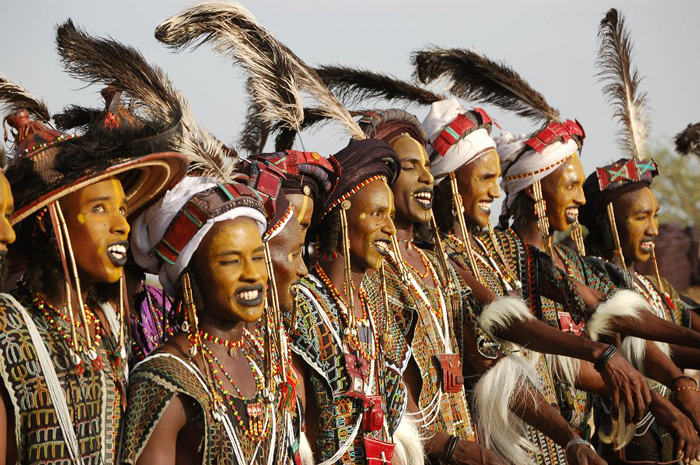Fulani: Villain And Victim Of Militia Attacks?

The Fulani in Nigeria are steadily picking up the roles of the villain in a horror script. The plots are unfolding at an unbelievable pace. And their neighbours and long-standing allies are watching helplessly in utter disbelief.
The farmers are mostly Hausa and the nomadic pastoralists, mostly Fulani.
Livestock of the sedentary farmers was routinely rustled or their farms razed down, with the Fulani targeted by vigilantes for reprisal, with most, innocent victims.
The Fulani had both legs right on the pedal ramping up atrocious crimes against communities in Zamfara State. With time the criminal gangs expanded into Katsina and Sokoto states. It was not long before the ethnic colouration of the conflict became obvious.
The farmers were mostly Hausa and so were the members of the vigilante groups. Enmity in communities was steadily following ethnic lines and Hausa people who had lived together in communities with Fulani no longer felt safe in their midst.
But several Fulani people are now living the consequence of the crimes committed by their kins among militias, kidnappers and rustlers in communities. Such Fulani people are being stigmatised following the actions of some members of their tribes.
Such people are now crying out that they too were victims of the criminal activities of the militias, kidnappers and rustlers as were members of other ethnic communities.
In Tsafe community in Zamfara State, for instance, an elderly Fulani man who gave his name only as Umar recounted his ordeals in the hands of armed groups as follows:
“Coming from an animal rearing community, we lived in peace with everyone, and with Hausawa, but today things are different. As a herder by birth, I cannot leave herding,” said the Fulani herdsman.
He further said, “the first time the rustlers came and rustled my animals I had to pay N500,000 to get them back but not all the animals came back. The vigilantes came.”
The vigilantes that are dominated by the Hausa do not give any Fulani the benefit of a doubt, many Fulani community members told HumAngle.
Today, law-abiding herders across Nigeria are caught up in the hostility of communities that are mostly crop farmers and by criminal elements known as Fulani herdsmen or bandits, unleashing terror on them.
Several Fulani who spoke to our reporter in Tsafe said they had hundreds of livestock before the escalation of violence but that their houses and properties were destroyed by angry Hausa youths who blamed them for the crimes of Fulani bandits who also attacked their own communities.
A leader of Miyyeti Allah, the socio-cultural group of the Fulani, who does not wish to be named, told HumAngle that a lot of his people had suffered, including himself. He said that despite his position, he had suffered in the hands of bandits, vigilantes and local authorities as well.
He recounted how in the past two decades or so, the people lived in a world where they only feared animals, but today, the greatest threat to man were his fellow men.
An official of Miyetti Allah said one Sule Na Lila, a member of the group in Zamfara was lynched by vigilantes, adding, “We had to request for security from soldiers and police to recover and bury his corpse.”
“I cannot say that Fulanis are not into criminality but a lot of them are peace-loving people.
“We should look beyond stereotypes. The guns are not made in the forests, the bullets too, the rustled animals are not eaten in the forest. So we need to ask questions?” the official said.
Fulanis are being arrested in local markets across Nigeria, it is difficult to sell some of their legitimate livestock to support family members who require medical treatments or other emergencies. Everyone has become a suspect.
Without proper labelling of livestock across the country, it will be difficult to track rustled cattle or prevent seizing cattle from their legitimate owners, when corrupt vigilantes or security officials raise false alarms, HumAngle learnt.
HumAngle also gathered that in several areas in the Northwest, Fulanis are not being admitted into Internally Displaced Person camps.
The stigma against the Fulani is growing and the criminality being perpetrated by Fulani armed groups is also growing unhindered. A way out of this, according to experts, is for law-abiding Fulanis to raise their voices and condemn the activities of criminals in their midst, and for the government to ensure that law and order are restored without fear or favour, across the country.
Additional reporting by Yusuf Anka.
Support Our Journalism
There are millions of ordinary people affected by conflict in Africa whose stories are missing in the mainstream media. HumAngle is determined to tell those challenging and under-reported stories, hoping that the people impacted by these conflicts will find the safety and security they deserve.
To ensure that we continue to provide public service coverage, we have a small favour to ask you. We want you to be part of our journalistic endeavour by contributing a token to us.
Your donation will further promote a robust, free, and independent media.
Donate HereStay Closer To The Stories That Matter




